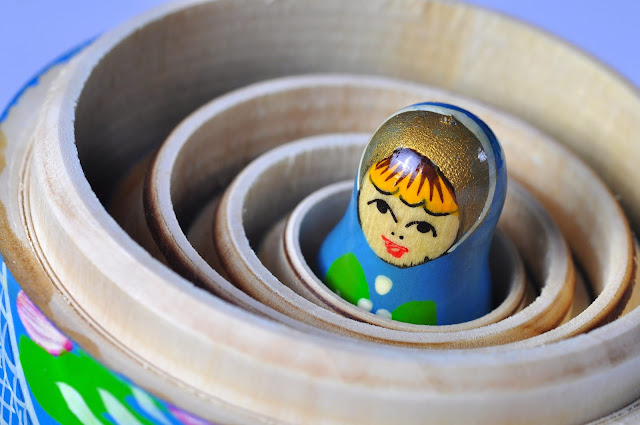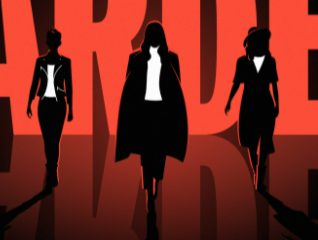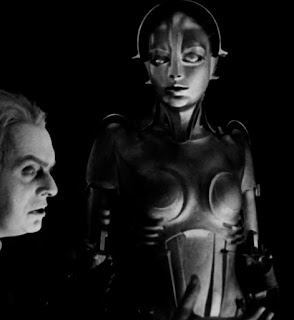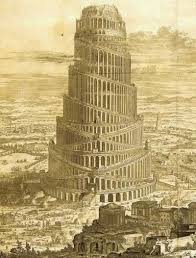Morfydd Clark cátegorizada de Galadriel. Crédito: Ben Rothstein / Prime Video
Tolkien creó con su imaginación una mitología y la situó en un lugar donde se enfrentaban diversas fuerzas e intereses. Pero si lo miramos bien tras el trasfondo épico se escondía la eterna lucha de contrarios que los seres humanos llevan experimentando desde el paleolítico. El bien contra el mal, la luz contra la oscuridad, la salud contra la enfermedad…
Hoy nuestro mundo es quizá más sofisticado pero nuestras necesidades, deseos y pasiones no distan mucho de los que viven los personajes de la tierra media. Nos enfrentamos a retos similares, a todos nos toca enfrentarnos con el mismo señor oscuro. Permítanme llamarlo Malestar y ponerle mayúscula.
El malestar siempre ha estado vinculado a la vida corriente. Nuestros antepasados lo experimentaron en grado sumo en sus viajes y aventuras. Pasaron mucha hambre, padecieron muchas enfermedades, frío, ataques de animales salvajes o de otros congéneres, también guerra y sus desmanes.
Si el malestar era pequeño, una rozadura en un pie sin zapato, un sabañón, una pequeña herida, una diarrea, no se hacía absolutamente nada. Si era más importante quizá se hiciera algo y si era muy intenso habitualmente te acababa matando y así terminaba el problema. No había muchas complicaciones, la muerte se asumía como consustancial a la vida y se integraba en esta. Se lloraban los muertos pero se tiraba para adelante, no se derrochaba en dramatismo, la vida era muy dura.
Hoy las cosas han cambiado. Nuestra sociedad entroniza el luminoso bienestar y trata de esconder la oscura muerte, minimizar la enfermedad y expatriar el Malestar. Los locos y moribundos, se quitan del medio, los decesos son tratados con la máxima higiene y se alejan de niños y personas sensibles.
Por otro lado la sociedad ha cambiado enormemente de un modelo industrial opresivo a otro postindustrial auto explotador, donde cada vez la presión por ser más eficiente se delega en cada cual, aumentando las horas de trabajo y la exigencia del mismo. La conciliación es imposible para muchos y mantener una vida privada y familiar de calidad cada vez es más difícil. Las relaciones familiares y personales sufren con regímenes laborales que explotan y agotan a individuos que llegan sin energía a sus hogares.
Una de cada cuatro personas que acude a un médico de familia lo hace por sentirse agobiado, nervioso, sin ánimo o sin fuerzas. La oscuridad de Mordor crece sin parar y el Malestar extiende su dominio con mano de hierro.
Es verdad que los Elfos pueden capearlo mejor gracias a su elevado estrato social, sus mejores condiciones de vida y su desahogada situación económica y quizá los Enanos en sus minas o algunos en sus comarcas no noten mucho la opresión. Pero al final a todos los afecta el chapapote emocional que va a ir a más en cuanto el cambio climático u otras desgracias condicionen nuevas catástrofes que globalicen nuevas olas de pandemia, carestía o penalidades.
Lo que parece que como sociedad hemos olvidado es tanto el verdadero significado del malestar como su trascendencia. Nos hemos empeñado en una cruzada inganable contra él por cuanto la sombra jamás desaparece del todo cuando hay luz y cuando no la hay reina en el mundo. ¿Para qué sirve la oscuridad? Me preguntaba mi hija de cinco años esta semana, ¿para qué sirve el malestar? Pregunto yo. Y las respuestas tienen que ver con su opuestos, dado que tanto luz y oscuridad como bienestar y malestar son inseparables. El malestar nos sirve para saber lo que es el bienestar y agradecerlo cuando lo disfrutamos. Nos permite detectar lo que no marcha bien y nos da la oportunidad de hacer algo al respecto. Nos avisa cuando nuestra vida se dirige a un precipicio o se ha acercado mucho a algo que quema.
Cualquier vehículo viene de fábrica con indicadores visuales y sonoros que avisan si vamos mal de aceite, el motor se ha calentado, o fallan los frenos. Esas lucecitas rojas o pitidos agudos son insufribles pero tienen gran valor. Nos permiten actuar y evitar males mayores. A nadie se le ocurre golpearlos con un martillo cuando aparecen para que dejen de molestar. Hoy quizá estemos algo huérfanos de formas de manejar los malestares asociados al estilo de vida dado que ese mismo estilo de vida nos anima a ignorarlos y mirar a otro lado. “Ponga un poco más de distracción en su vida y siga adelante” parecen decirnos. Pero vemos que con malestares grandes no nos sirven de nada las series de televisión, los vídeos y tontunas de las redes sociales, ni la música que nuestras pantallas y auriculares no dejan de servirnos.
Marta Carmona y Javier Padilla en su libro Malestamos nos comparten la tesis de que ante el malestar que amenaza nuestra salud mental es necesario ir más allá del enfoque individual (psicoterapia o sindicato) y tomar medidas políticas y sociales que incidan en las causas directas de los diversos malestares y en las causas de las causas que suelen ser sociales o estructurales. Coincido con ellos pero me parece muy difícil implementarlo en una coyuntura que sacraliza la individualidad, la “libertad” y el vaya usted a lo suyo y no se meta en líos. Probablemente la toma de conciencia de que en solitario somos muy vulnerables y unidos más resistentes pueda servir para que como ciudadanos de a pie prioricemos de nuevo un tejido familiar y de barrio que nos arrope y pueda arropar a otros, más allá de las frías redes sociales industriales que nos disgregan y atontan. No creo que esta línea de actuación se pueda implantar desde arriba, aunque es cierto que hay políticas que lo pueden favorecer como que hay otras que lo dificultan.
Como médico de familia me enfrento cada día con personas hundidas por el Malestar. Algunas por sus dolores, enfermedades crónicas o problemáticas afectivas o familiares, otras por la sobrecarga del trabajo, el cuidado de terceros o la impotencia de llevar una vida personal digna. Ofrezco escucha, que con frecuencia es exigua, y una perspectiva que trata de facilitar que el paciente entienda lo que pasa y le permita hacer los ajustes que considere. En un porcentaje de casos ofrezco medicación o psicoterapia. En la mayoría que se desahoguen solos o en compañía y se den permiso para abrir líneas de expresión narrativas que sean de su talla. A veces les mando al abogado o al sindicato. Otras les doy de baja. Es frecuente que lo haga todo a la vez. Pero mi sensación es la del que tapa agujeros en la bodega de un barco que se hunde por mil vías de agua. No damos abasto. Tampoco las unidades de salud mental con las que trabajamos. Porque la solución al problema no puede ser sanitaria. No todo el malestar es problema de salud mental.
Y en estas estamos cuando de repente explota un volcán en la tierra media y lo llena todo de humo y cascotes. Y vamos a catástrofe por mes para aderezar una situación que ya está calentita de por si. Más ceniza de miedo y agobio para el personal y las pantallas a escupir estopa por una explosión en un puente ruso o un nuevo huracán haciendo de las suyas.
A mis pacientes les invito a apagar pantallas y salir a pasear. Dirán que soy un rancio y que mi método es muy anticuado, tendrán razón. Pero a lo mejor se relajan un poco por el bosque y se encuentran a alguien y le dan los buenos días o se ponen a hablar. Por algún sitio hay que empezar.

Mental Health in Middle-earth
Tolkien's imagination created a mythology and set it in a place where diverse forces and interests clashed. But if you look at it closely, behind the epic backdrop lay the eternal struggle of opposites that humans have been experiencing since the Palaeolithic era. Good against evil, light against darkness, health against disease....
Today our world is perhaps more sophisticated, but our needs, desires and passions are not very different from those experienced by the characters of Middle Earth. We face similar challenges, we all have to deal with the same dark lord. Let me call it malaise and capitalise it.
Discomfort has always been linked to ordinary life. Our ancestors experienced it to the highest degree in their travels and adventures. They went hungry, suffered many diseases, cold, attacks by wild animals or other fellow creatures, as well as war and its excesses.
If the ailment was small, a scrape on a foot without shoes, a chilblain, a small wound, a diarrhoea, absolutely nothing was done. If it was more important, maybe something was done, and if it was very intense, it usually ended up killing you and that was the end of the problem. There were not many complications, death was assumed as consubstantial to life and was integrated into it. People mourned the dead but they moved on, they didn't waste their time on drama, life was very hard.
Today things have changed. Our society enthroned the luminous wellbeing and tries to hide the dark death, minimise illness and expatriate malaise. The insane and the dying are taken out of the way, the dead are treated with the utmost hygiene and are kept away from children and sensitive people.
On the other hand, society has changed enormously from an oppressive industrial model to a self-exploitative post-industrial one, where the pressure to be more efficient is increasingly delegated to everyone, increasing working hours and work demands. Work-life balance is impossible for many and maintaining a quality private and family life is increasingly difficult. Family and personal relationships suffer under work regimes that exploit and exhaust individuals who arrive home drained of energy.
One in four people who visit a family doctor do so because they feel overwhelmed, nervous, discouraged or drained. The darkness of Mordor grows relentlessly and the Malaise extends its iron grip.
It is true that the Elves can weather it better thanks to their higher social status, their better living conditions and their comfortable economic situation, and perhaps the Dwarves in their mines or some in their counties do not feel the oppression much. But in the end, they are all affected by the emotional oil spill that will increase as climate change or other disasters bring new catastrophes that will globalise new waves of pandemics, famine or hardship.
What we as a society seem to have forgotten is both the true meaning of malaise and its transcendence. We have engaged in an unwinnable crusade against it because the shadow never completely disappears when there is light and when there is no light it reigns in the world. What is the point of darkness? My five year old daughter asked me this week, what is discomfort for? I ask. And the answers have to do with their opposites, since both light and darkness and wellbeing and discomfort are inseparable. Discomfort helps us to know what well-being is and to be grateful for it when we enjoy it. It allows us to detect what is wrong and gives us the opportunity to do something about it. It warns us when our life is heading for a cliff or has come too close to something that burns.
Every vehicle comes from the factory with visual and audible indicators that warn us if we're running low on oil, the engine has overheated, or the brakes are failing. Those little red lights or high-pitched beeps are unbearable but invaluable. They allow us to take action and avoid greater evils. Nobody would think of hitting them with a hammer when they appear to stop them from bothering us. Today we may be somewhat orphaned of ways to deal with lifestyle discomforts because that same lifestyle encourages us to ignore them and look the other way. "Put a little more distraction in your life and move on" we seem to be told. But we see that with major ailments we have no use for TV series, videos and social media nonsense, nor for the music that our screens and headphones never fail to serve us.
Marta Carmona and Javier Padilla in their book Malestamos share with us the thesis that in the face of the malaise that threatens our mental health it is necessary to go beyond the individual approach (psychotherapy or trade union) and take political and social measures that have an impact on the direct causes of the various malaises and on the causes of the causes, which are usually social or structural. I agree with them, but it seems to me very difficult to implement this in a situation that sacralises individuality, "freedom" and "do your own thing and stay out of trouble". Probably the realisation that alone we are very vulnerable and united we are more resistant can help us as ordinary citizens to prioritise once again a family and neighbourhood fabric that can shelter us and can shelter others, beyond the cold industrial social networks that disintegrate and dumb us down. I do not believe that this line of action can be implemented from above, although it is true that there are policies that can favour it, just as there are others that hinder it.
As a family doctor, I am confronted every day with people who are plagued by malaise. Some because of their pain, chronic illnesses or emotional or family problems, others because of work overload, caring for others or the impotence of leading a dignified personal life. I offer listening, which is often lacking, and a perspective that tries to make it easier for the patient to understand what is happening and to allow them to make adjustments as they see fit. In a percentage of cases I offer medication or psychotherapy. In the majority I let them vent alone or in company and give them permission to open up narrative lines of expression that are their own size. Sometimes I send them to a lawyer or a union. Sometimes I discharge them. Often I do it all at once. But my feeling is that of someone who plugs holes in the hold of a ship that is sinking through a thousand leaks. We can't cope. Neither can the mental health units we work with. Because the solution to the problem cannot be sanitary. Not all discomfort is a mental health problem.
And this is where we are when suddenly a volcano explodes in the middle earth and fills everything with smoke and debris. And we have one catastrophe per month to add spice to a situation that is already hot in itself. More ashes of fear and anxiety for the staff, and the screens will be spitting out the smoke from an explosion on a Russian bridge or a new hurricane doing its thing.
I invite my patients to turn off the screens and go for a walk. They'll say I'm old-fashioned and my method is very old-fashioned, and they'll be right. But maybe they will relax a bit in the woods and meet someone and say good morning or start talking. You have to start somewhere.
Marta Carmona y Javier Padilla entrevistados por el Huffpost. Photo: PATRICIA DONOHOE)
中土世界的心理健康
机器翻译,抱歉有任何错误。
托尔金用他的想象力创造了一个神话,并把它设定在一个各种力量和利益冲突的地方。但如果我们仔细观察,在史诗般的背景背后是人类自旧石器时代以来一直在经历的永恒的对立斗争。善良对抗邪恶,光明对抗黑暗,健康对抗疾病....
今天,我们的世界也许更加复杂,但我们的需求、欲望和激情与中土世界的人物所经历的没有什么不同。我们面临着类似的挑战,我们都要面对同样的黑暗主宰。让我称其为萎靡不振,并将其大写。
不舒服总是与普通生活联系在一起。我们的祖先在他们的旅行和冒险中体验到了它的最高程度。他们挨饿,遭受许多疾病、寒冷、野生动物或其他生物的攻击,以及战争和其过度行为。
如果是小病,不穿鞋的脚上的擦伤、冻疮、小伤口、腹泻,绝对不会做什么。如果是比较重要的事情,也许会做一些事情,如果是非常激烈的事情,通常最后会杀死你,这就是问题的结局。没有太多的并发症,死亡被认为是与生命同在的,并被融入其中。人们哀悼死者,但他们继续前进,他们没有把时间浪费在戏剧上,生活非常艰难。
今天,事情已经发生了变化。我们的社会崇尚光明的福祉,并试图掩盖黑暗的死亡,尽量减少疾病和外籍人士的萎靡。精神病患者和垂死的人被带离,死者被以最卫生的方式处理,并远离儿童和敏感人士。
另一方面,社会已经发生了巨大的变化,从压迫性的工业模式变成了自我剥削的后工业模式,提高效率的压力越来越多地下放给每个人,增加了工作时间和工作要求。对许多人来说,工作与生活的平衡是不可能的,维持高质量的私人和家庭生活也越来越困难。家庭和个人关系在工作制度下受到影响,这些制度剥削和耗尽了个人的精力,使他们回到家时精力不济。
去看家庭医生的人中有四分之一是因为他们感到不知所措、紧张、灰心或疲惫。魔多的黑暗无情地增长,恶灵扩大了它的铁钳。
诚然,精灵们可以更好地承受,因为他们有更高的社会地位,更好的生活条件和更好的经济状况,也许在矿区的矮人或在他们的郡里的一些矮人并不怎么感到压迫。但最终,他们都会受到情绪化的石油泄漏的影响,随着气候变化或其他灾难带来新的灾难,这些灾难将使新的大流行病、饥荒或困苦的浪潮全球化。
作为一个社会,我们似乎已经忘记了萎靡不振的真正含义和它的超越性。我们对它进行了一场打不赢的讨伐,因为当有光的时候,阴影永远不会完全消失,而当没有光的时候,它就会统治世界。 黑暗的意义是什么?我五岁的女儿这周问我,不舒服是为了什么?我问。而答案与它们的对立面有关,因为光明与黑暗、安康与不安康都是不可分割的。不舒服有助于我们了解什么是幸福,并在享受幸福时对它心存感激。它使我们能够发现什么是错的,并给我们机会去做一些事情。当我们的生活正在走向悬崖,或者已经太接近于燃烧的东西时,它就会警告我们。
每辆汽车在出厂时都有视觉和听觉指示器,如果我们的机油不足,发动机过热,或刹车失灵,这些指示器会向我们发出警告。那些小红灯或高亢的蜂鸣声让人难以忍受,但却非常宝贵。它们使我们能够采取行动,避免更大的罪恶。当他们出现时,没有人会想到用锤子打他们,以阻止他们骚扰我们。今天,我们可能在处理生活方式不适的方法上有些孤陋寡闻,因为同样的生活方式鼓励我们忽视它们,视而不见。我们似乎被告知,"在你的生活中多放一点注意力,然后继续前进"。但我们看到,有了重大疾病后,我们对电视剧、视频和社交媒体上的胡言乱语没有任何用处,对屏幕和耳机上的音乐也从不吝啬地为我们服务。
Marta Carmona和Javier Padilla在他们的《Malestamos》一书中与我们分享了这样一个论点:面对威胁我们心理健康的弊病,有必要超越个人的方法(心理治疗或工会),采取对各种弊病的直接原因和原因的影响的政治和社会措施,而这些原因通常是社会或结构性的。我同意他们的观点,但在我看来,在一个将个性、"自由 "和 "做自己的事,不惹麻烦 "神圣化的情况下,要落实这一点非常困难。也许意识到单独的我们非常脆弱,而团结的我们更有抵抗力,可以帮助我们作为普通公民再次优先考虑家庭和邻里的结构,可以庇护我们,也可以庇护其他人,超越冰冷的工业社会网络,使我们瓦解和哑忍。我不认为这种行动路线可以从上面实施,尽管确实有一些政策可以有利于它,正如有一些政策阻碍它一样。
作为一名家庭医生,我每天都要面对那些被萎靡不振困扰的人。有些人是因为他们的疼痛、慢性病或情感或家庭问题,有些人是因为工作负担过重、照顾他人或无力过上有尊严的个人生活。我提供倾听,这往往是缺乏的,并提供一种观点,试图使病人更容易理解正在发生的事情,并允许他们做出他们认为合适的调整。在一部分情况下,我提供药物治疗或心理治疗。在大多数情况下,我让他们单独或在公司里发泄,并允许他们开辟属于他们自己规模的叙述性表达渠道。有时我把它们送到律师或工会那里。有时我让他们退役。通常我都是一次做完。但我的感觉就像有人在一艘因千疮百孔而沉没的船上堵住了洞。我们无法应付。与我们合作的心理健康单位也不能这样做。因为解决这个问题的办法不可能是卫生的。并非所有的不适都是心理健康问题。
而这就是我们所在的地方,突然间,一座火山在中土爆炸,让一切都充满了烟雾和碎片。而我们每个月都有一次灾难,为本身已经很热的情况增加调味品。对工作人员来说,更多的是恐惧和焦虑的灰烬,屏幕上将会吐出俄罗斯大桥上的爆炸或新的飓风所带来的烟雾。
我邀请我的病人关掉屏幕,出去走走。他们会说我很老套,我的方法很老套,他们是对的。但也许他们会在树林里放松一下,遇到有人说早安或开始交谈。你必须从某个地方开始。






.png)












